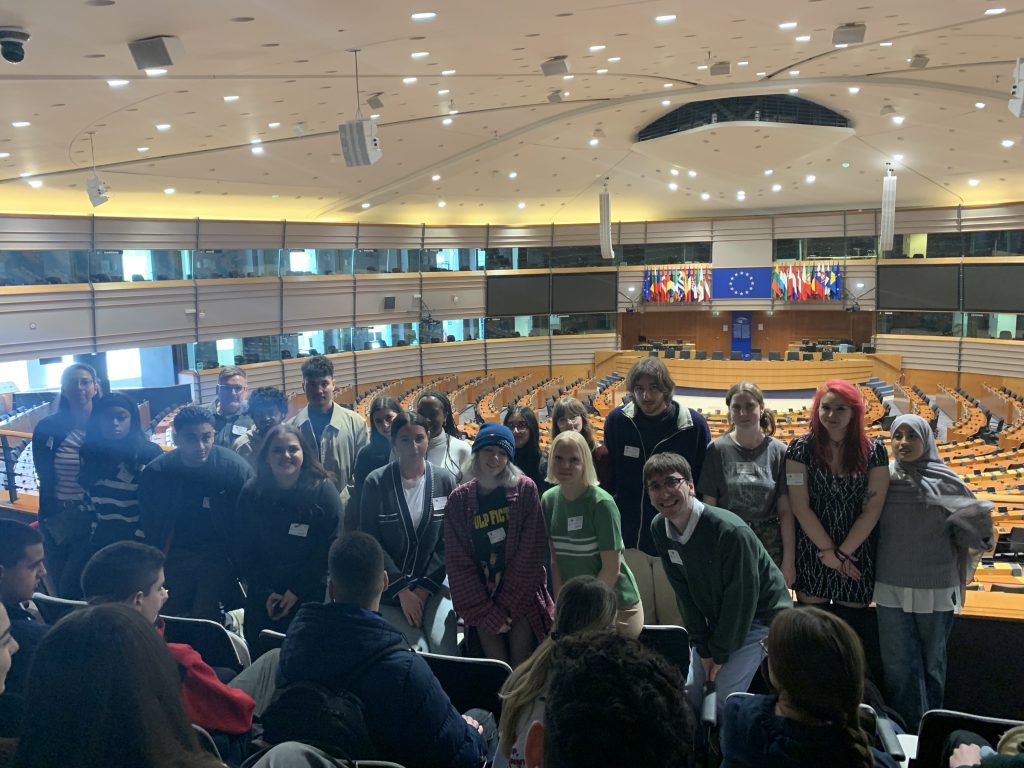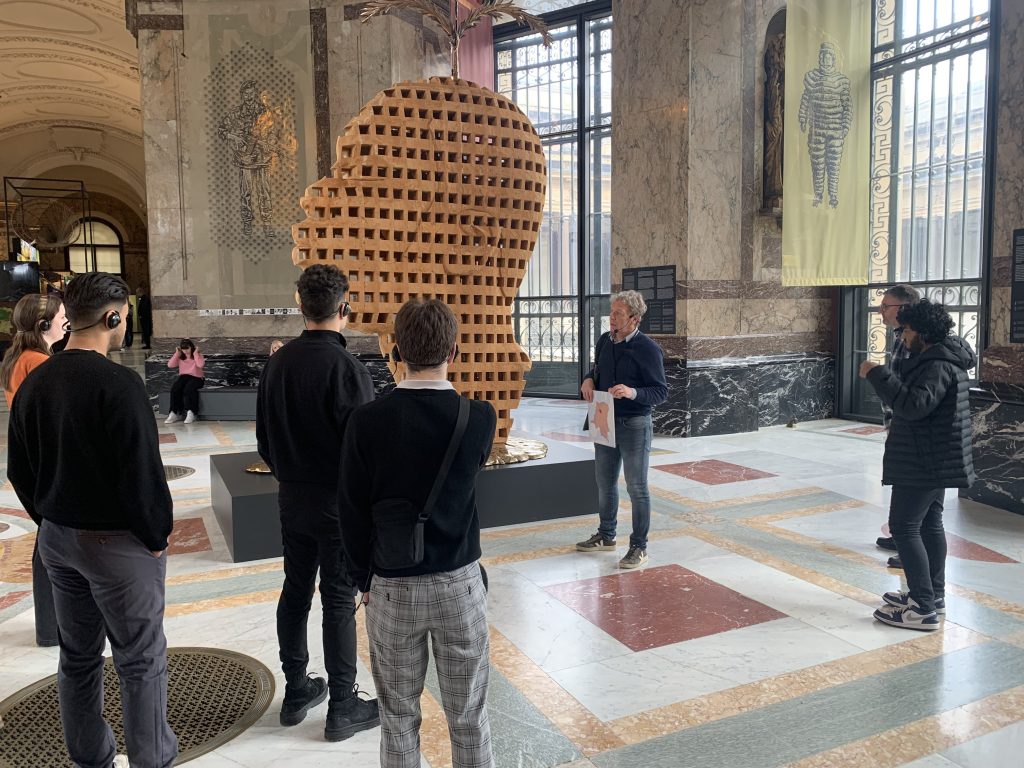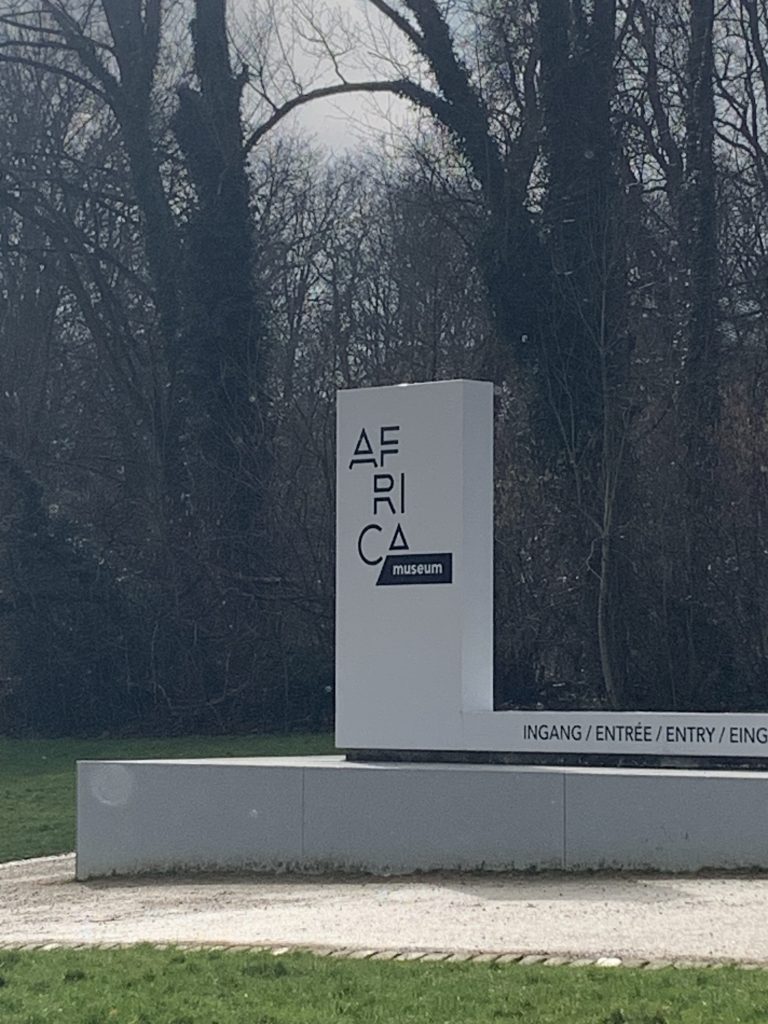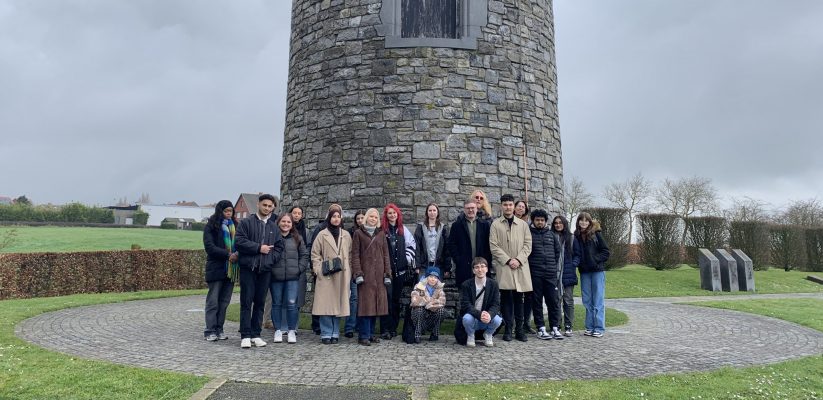A group of Humanities students recently embarked on a four-day educational trip to Leuven, Belgium, where they immersed themselves into the city’s vibrant student culture, reflected on history in Flanders, gained insight into European politics in Brussels, and confronted colonial legacies at the Royal Museum for Central Africa. Beyond the structured itinerary, the trip was also an opportunity to build community, experience Belgian culture, and engage with history in a truly immersive way.
Day 1: Arrival in Leuven – A City of Students and History
Traveling by Eurostar, the students arrived in Brussels, and despite a huge rail strike(!), they successfully made their way to Leuven, a lively university city known for its historic charm. Their accommodation for the trip was the Irish College, a beautifully preserved building that has long served as a centre for education and cultural exchange.
To get acquainted with their new surroundings, the group took part in a guided walking tour of Leuven. As home to KU Leuven, one of the oldest universities in Europe, the city is filled with students, creating a unique blend of medieval history and modern vibrancy. Highlights of the tour included the stunning Gothic Town Hall, the imposing St. Peter’s Church, and the lively Oude Markt, often referred to as ‘the longest bar in the world’ due to its many student-frequented bars and cafes.
In the evening, students had their first taste of Belgian culture, enjoying traditional waffles while soaking in Leuven’s relaxed yet lively social scene.
Day 2: The Battlefields of Flanders
The second day took a sombre and reflective turn as the students travelled to Flanders to visit key World War I battle sites near Ypres. A guided tour of the North and South Salient provided a powerful insight into the horrors of trench warfare.
The first stop was the Peace Pool, a symbolic site dedicated to reconciliation and remembrance. From there, the group visited the Irish Peace Tower, a memorial honouring Irish soldiers of all backgrounds who fought in the war. However, the most poignant moment came at Tyne Cot Cemetery in Passchendaele, the largest Commonwealth war cemetery in the world, where thousands of white gravestones stretched as far as the eye could see.
Reflecting on the experience, one student remarked:
“Getting to visit the trenches. It was an absolutely unforgettable experience.”

Day 3: Exploring the European Parliament and Brussels
The focus shifted to modern Europe as students travelled to Brussels for a guided tour of the European Parliament. This visit provided a thought-provoking contrast to the previous day’s history, offering an inside look at how Europe’s institutions work, including translation and interpreting for the EU’s many official languages. The guide also emphasized the EU Parliament’s support for Ukraine and its broader mission to promote peace and cooperation across Europe.
Following the tour, students had free time to explore Brussels, with many visiting the Grand Place, while others indulged in Belgium’s famous chocolates.
Cultural Immersion in Leuven
That evening, the students gathered for dinner and reflection on their experiences. For many, this sense of community and cultural engagement was a highlight of the trip. One student shared:
“My favourite part of the trip was the community built throughout, and the opportunities to engage with the local culture – whether it was the dinners, pubs, or the day in Brussels. I believe that was the most engaging part, and I am particularly interested in cultural immersion.”

Day 4: Confronting Colonial Legacies at the Royal Museum for Central Africa
On the final day, students visited the Royal Museum for Central Africa in Tervuren, a museum that has undergone a dramatic transformation in recent years. Once a colonial propaganda institution, the museum now actively works to confront Belgium’s imperial past and its exploitation of Congo.
With a guided tour, students explored artifacts from Central Africa, including some not available to the public. The discussion focused on how the museum is reckoning with its history, highlighting ongoing efforts to return stolen artifacts and address the problematic legacy of colonialism.
For many, this was one of the most eye-opening experiences of the trip. As one student reflected:
“I found the Royal Museum of Central Africa the most interesting and eye-opening. Not just the objects in the museum, but the museum itself, as it once used to be a place of justifying the extractive colonialism that was taking place in Congo.”


Final Reflections – A Journey Worth Taking
As the students boarded their train home, they reflected on a trip that had been as enriching as it was thought-provoking. One student recommended the experience, saying:
“I would recommend this trip to other students. It was a really fun experience through the university, and I would definitely apply to return.”
From the trenches of World War I to the halls of the European Parliament, and from the streets of Leuven to a museum that confronted colonial history, this field trip deepened the students’ understanding of Europe’s past, present, and future.
For many, it was more than just a study trip – it was an unforgettable journey of history, friend making, and culture.
About Westminster
As one of the most diverse universities in the UK, we are a global university with London energy, with more than 19,000 students from 169 countries. To find out more about our English and Creative Writing, History and Languages courses, visit our website.
